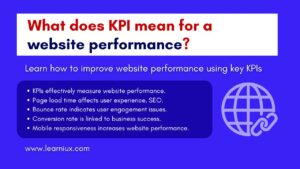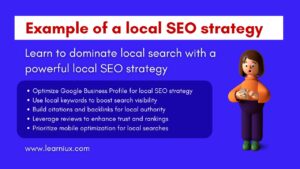Off-page SEO strategy is an important aspect of search engine optimization that focuses on actions taken outside of your website to improve its visibility, authority, and ranking on search engines like Google. Unlike on-page SEO, which is concerned with optimizing the content, meta tags, and technical elements of your site, off-page SEO strategy focuses on building a strong online presence through external efforts. At the heart of this approach are the 3 Cs: content, connections, and credibility. These three pillars work together to build your website’s reputation, drive organic traffic, and establish trust with both users and search engines. By understanding and implementing these elements effectively, businesses and website owners can create a strong off-page SEO strategy that delivers long-term results.
Content is the foundation of any successful off-page SEO strategy. It’s not just about the articles, images, or videos you publish on your own website, but also the content you share or create on external platforms to drive attention and engagement. High-quality content acts as a magnet for backlinks, social shares, and user interaction, all of which signal to search engines that your website is valuable and relevant. For example, publishing detailed industry reports or insightful blog posts on a platform like Medium can encourage other websites to link back to your content, which can boost your off-page SEO strategy. The key is to create content that is informative, engaging, and shareable. This can include in-depth guides, infographics, case studies, or even interactive tools that provide unique value to your audience. When people find your content useful or interesting, they’re more likely to share it on social media, reference it in their own articles, or link to it from their websites, all of which contribute to a strong off-page SEO strategy.
Guest posting is an effective way to leverage content for your off-page SEO strategy. By contributing articles to reputable websites in your niche, you can reach a larger audience, increase referral traffic, and gain high-quality backlinks. When choosing a website for guest posting, prioritize websites with high domain authority and relevance to your industry. A well-crafted guest post that provides actionable insight or solves a common problem can establish you as an expert in your field and enhance your off-page SEO strategy. Additionally, content syndication (republishing your content on platforms like LinkedIn, industry forums, or news aggregators) can increase your reach. However, it’s important to avoid duplicate content issues by using canonical tags or linking to the original article on your website. By consistently creating and distributing valuable content, you can strengthen your off-page SEO strategy and build a network of links and mentions that increase your site’s authority.
Another aspect of content in an off-page SEO strategy is creating link-worthy assets. These are pieces of content that naturally attract backlinks due to their uniqueness or usefulness. For example, a comprehensive guide to a trending topic, a data-driven research study, or a visually appealing infographic can become a go-to resource for others in your industry. To maximize the impact of these assets, promote them through social media, email outreach, or online communities. The more exposure your content gets, the more likely it is to receive backlinks and social shares, both of which are critical to the success of an off-page SEO strategy. It’s also worth noting that search engines are increasingly evaluating user engagement metrics like time spent on page or social shares as indicators of content quality. Therefore, creating content that resonates with your audience emotionally or intellectually can further enhance your off-page SEO strategy by encouraging organic engagement.
The second pillar of an off-page SEO strategy is connections. This involves building relationships with other websites, influencers, bloggers, and online communities to increase your site’s visibility and authority. The most well-known tactic in this area is link building, which has remained a pillar of off-page SEO strategy despite changes in search engine algorithms over the years. Backlinks from reputable and relevant websites act as a vote of confidence, signaling to search engines that your site is trustworthy and authoritative. However, not all backlinks are created equal. Quality is more important than quantity, and one link from a high-authority site like a major news outlet or industry-leading blog can have more impact than dozens of links from low-quality directories.
To build effective connections for your off-page SEO strategy, focus on personalized outreach. This involves identifying websites or influencers in your niche and reaching out with tailored proposals for collaboration. For example, you can offer to write a guest post, contribute to a roundup article, or share their content with their audience in exchange for a mention or link. The key is to emphasize mutual benefits and avoid generic, spammy outreach emails. Building genuine relationships with other website owners or bloggers can lead to long-term partnerships that can benefit your off-page SEO strategy. For example, collaborating with an influencer to co-create content or participating in an industry webinar can expose your brand to a new audience and generate valuable backlinks.
Social media plays a crucial role in building connections for your off-page SEO strategy. Platforms like Twitter, Instagram, LinkedIn, and even niche forums allow you to interact with your audience, share your content, and connect with peers in the industry. Actively participating in relevant discussions, such as answering questions in a LinkedIn group or joining a Twitter chat, can position you as a thought leader and drive attention to your website. Social media links are usually nofollow (meaning they don’t pass on direct SEO value), but they can drive traffic, increase brand visibility, and lead to organic backlinks from users who are searching for your content. Consistently engaging with your followers and sharing valuable insights can encourage them to share your content, which will further enhance your off-page SEO strategy.
Another way to build connections is through online communities and forums like Reddit, Quora, or industry-specific platforms. By providing helpful answers to questions or sharing expertise, you can subtly promote your website and drive traffic. However, it’s important to avoid overtly promoting yourself, as many communities have strict rules against spamming. Instead, focus on adding value and only including links in your content when they’re relevant. These efforts can lead to organic mentions and links, which can strengthen your off-page SEO strategy over time. Additionally, partnering with local businesses or organizations can provide valuable connections, especially for local SEO. For example, sponsoring a community event or collaborating with a local charity can get you mentioned on their website, which can boost your off-page SEO strategy.
Credibility is the third and final C of an off-page SEO strategy. It’s about establishing your website as a trusted and authoritative source in the eyes of both users and search engines. Credibility is closely tied to the quality of your backlinks, your brand reputation, and the trust signals you send across the web. Getting backlinks from highly-authoritative, relevant websites is the most effective way to build credibility in your off-page SEO strategy. For example, a link from a well-known industry publication or academic institution carries significant weight and can improve your site’s ranking. To achieve this, focus on creating content or resources that naturally attract links, such as original research, expert interviews, or comprehensive guides.
Online reviews and reputation management are also important for credibility in an off-page SEO strategy. Positive reviews on platforms like Google My Business, Yelp, or Trustpilot signal to search engines and users that your business is trustworthy and reliable. Encouraging satisfied customers to leave reviews and respond to feedback (both positive and negative) demonstrates transparency and a commitment to customer satisfaction. This not only builds trust with potential customers, but it also enhances your off-page SEO strategy by creating positive brand associations. Monitoring your online reputation and promptly addressing any negative feedback can help prevent damage to your credibility and maintain a strong presence in search results.
Another factor that contributes to credibility in an off-page SEO strategy is brand mentions, even if they don’t directly link to it. Known as unlinked mentions, these references to your brand on other websites, social media, or forums can still indicate relevance and authority to search engines. Tools like Google Alerts or Mentions can help you track brand mentions and identify opportunities to turn them into backlinks. For example, if a blog mentions your business but doesn’t link to your site, you can reach out to the author and politely request a link, which will further strengthen your off-page SEO strategy.
Consistency is key when implementing the 3 Cs of an off-page SEO strategy. It’s essential to publish high-quality content regularly, build relationships with industry peers, and maintain a positive online reputation. However, the rewards are significant. A well-executed off-page SEO strategy can improve your website’s domain authority, increase targeted traffic, and help you rank higher for competitive keywords. To measure the success of your efforts, use tools like Ahrefs, Moz, or SEMrush to track your backlinks, referral traffic, and domain authority over time. These insights can help you identify what’s working and where you need to adjust your off-page SEO strategy.
It’s also important to stay up to date with the latest trends and algorithm changes in the world of SEO. Search engines like Google are constantly evolving, and what works today may not be as effective tomorrow. For example, recent updates have placed a greater emphasis on user experience signals like engagement metrics and brand authority. By aligning your off-page SEO strategy with these trends, you can stay ahead of the competition. This may include experimenting with new platforms like emerging social media networks or exploring innovative content formats like interactive videos or podcasts to attract attention and links.
A common mistake to avoid in off-page SEO strategy is focusing on quantity over quality. For example, acquiring hundreds of low-quality backlinks from spammy directories can damage your site’s reputation and even lead to search engine penalties. Instead, prioritize getting links from authoritative, relevant sources, even if it takes more time and effort. Similarly, avoid over-optimizing your anchor text, as this can look unnatural and trigger algorithmic flags. A natural, diverse link profile is essential for a sustainable off-page SEO strategy.
Another challenge in off-page SEO strategy is measuring the direct impact of your efforts. Unlike on-page SEO, where changes like optimizing title tags can yield immediate results, off-page SEO often takes time to show measurable results. Building relationships, earning backlinks, and establishing credibility are long-term investments that require patience and persistence. However, the combined effect of these efforts can significantly improve your search rankings and brand visibility.
To maximize the effectiveness of your off-page SEO strategy, combine the 3 Cs into a comprehensive plan. Start by identifying your target audience and the types of content that resonate with them. Then, reach out to relevant websites and influencers to build connections and secure backlinks. Finally, monitor your online reputation and look for opportunities to build your credibility through reviews, mentions, and high-quality content. By consistently following these principles, you can build a powerful off-page SEO strategy that drives sustainable growth.
Ultimately, the 3 Cs of an off-page SEO strategy (content, connections, and credibility) provide a comprehensive framework for improving your website’s search engine performance. Content attracts attention, backlinks, connections increase your reach and authority, and credibility establishes trust with users and search engines. By focusing on these three pillars, you can build a strong off-page SEO strategy that enhances your online presence, increases organic traffic, and helps you achieve your digital marketing goals. Whether you’re a small business owner, blogger, or marketer, implementing the 3 Cs can help you stand out in a competitive online landscape. Get started today by creating valuable content, building meaningful relationships, and building a trusted brand to unleash the full potential of your off-page SEO strategy.





















































